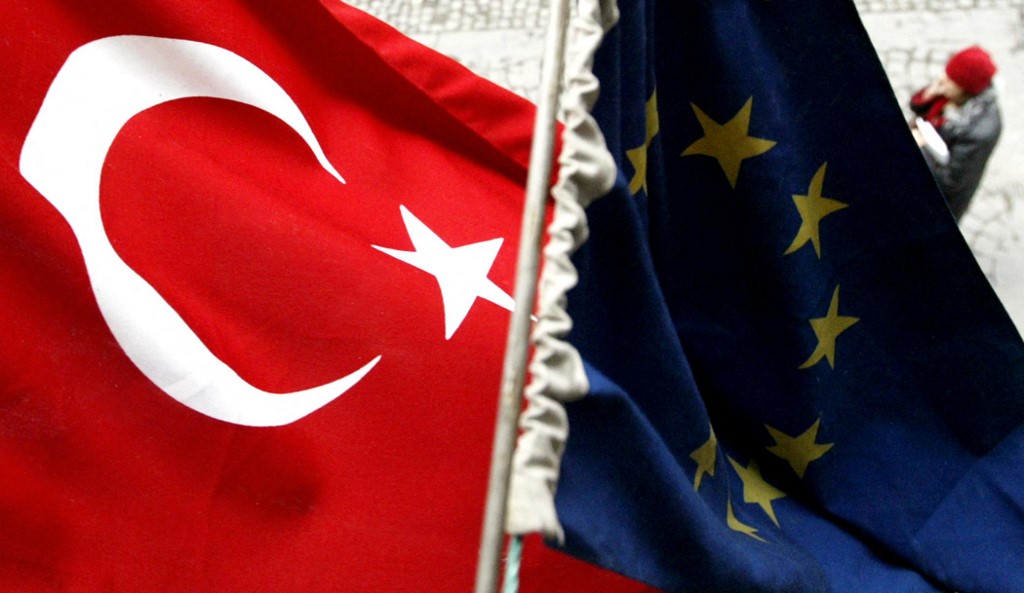The European Commission in its yearly report on Turkey released on Wednesday said democratic backsliding continued, underlining serious deficiencies in the functioning of the country’s democratic institutions.
According to the commission’s 2022 Report on Turkey, the Turkish parliament continued to lack the necessary means to hold the government accountable during the reporting period, and Turkey’s constitutional architecture continued to centralize powers at the level of the presidency without ensuring a sound and effective separation of powers.
“In the absence of an effective checks and balances mechanism, the democratic accountability of the executive branch continues to be limited to elections,” according to the key findings of the report.
The Turkish government on Wednesday rejected some of the findings and accused the EU of applying “double standards.”
“This Report which ignores the obligations of the EU towards Türkiye and displays double standards is yet another example of the EU’s biased stance when it comes to Türkiye,” Turkey’s Foreign Ministry said in a statement.
The report said certain legal provisions granting extraordinary powers to government authorities and retaining several restrictive elements from the rules of a state of emergency that was declared in July 2016 after an abortive coup and continued for two years remained integrated in the law, which continued to have a significant impact on democracy and fundamental rights.
According to the report concerns over the systemic lack of independence of the judiciary and undue pressure on judges and prosecutors remained.
“Particular concerns relating to the judiciary’s adherence to international and European standards increased, in particular in relation to the refusal to implement rulings by the European Court of Human Rights [ECtHR],” the commission said.
Turkey has so far failed to implement the court’s rulings concerning Kurdish politician Selahattin Demirtaş and businessman Osman Kavala, both jailed on politically motivated charges, calling for their immediate release from prison. This prompted the Council of Europe to officially launch an infringement procedure against Turkey in February.
The ECtHR will establish whether Turkey has violated the European Convention on Human Rights. If the Strasbourg court rules that Turkey has not fulfilled its obligations under the convention, then the Committee of Ministers will decide on sanctions to be imposed on the country.
The council’s infringement procedure against Turkey could last months and possibly years.
Turkey could ultimately lose its voting rights or even be removed from the pan-European rights body it first joined in 1950.
“The State of Emergency Inquiry Commission has yet to complete the examination of its caseload in relation to the public employees who were dismissed by decree-laws during the period of emergency rule.,” the commission said.
After the coup attempt, the Turkish government carried out a massive purge of state institutions under the pretext of an anti-coup fight. More than 130,000 public servants, including 4,156 judges and prosecutors, as well as 29,444 members of the armed forces were summarily removed from their jobs for alleged membership in or relationships with “terrorist organizations” by emergency decree-laws subject to neither judicial nor parliamentary scrutiny.
Turkey maintained the structural deficiencies of the presidential system during the reporting period, the commission said.
According to the report, the pressure on mayors from opposition parties by the government further weakened local democracy.
Serious backsliding regarding civil society issues continued, the commission said, underlining that civil society organizations “faced increased pressure and their space to operate freely continued to reduce, limiting their freedoms of expression, association and assembly.”
“The implementation of the law on preventing financing of proliferation of weapons of mass destruction added further restrictions on civil society organisations,” the report added.
The report underlines the threats posed to Turkey by various terrorist
groups while saying that the EU has condemned all acts of terrorist violence perpetrated in the country.
“Türkiye has prioritised the fight against the PKK [Kurdistan Workers’ Party] and the dismantling of the Gülen movement,” the report said.
While stressing that Turkey has a legitimate right to fight terrorism, the European Commission said that “counter-terrorism efforts should be in line with the
rule of law and fundamental rights and freedoms and must not be used to silence political
opposition and dissent,” adding that the Turkish anti-terrorism legislation and practices should be brought into line with EU standards.
Turkish President Recep Tayyip Erdoğan has been targeting followers of the Gülen movement since the corruption investigations of December 17-25, 2013, which implicated then-prime minister Erdoğan, his family members and his inner circle.
Dismissing the investigations as a Gülenist coup and conspiracy against his government, Erdoğan designated the movement as a terrorist organization and began to target its members. Erdoğan intensified the crackdown on the movement following a coup attempt on July 15, 2016 that he accused Gülen of masterminding. Gülen and the movement strongly deny involvement in the abortive putsch or any terrorist activity.
Turkey and the EU began membership talks in 2005, but the process has come to a standstill in recent years. Countries aspiring to become members must align their laws and legislation in 35 policy areas, or negotiating chapters. EU leaders agreed in 2018 that no new chapters in Turkey’s accession negotiations should be opened or closed.


